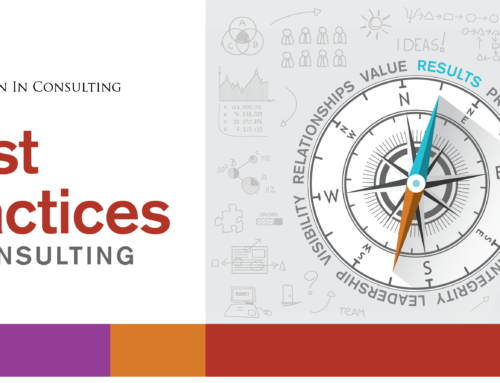Having to pick up the phone to follow-up with a client or potential client with the hopes of generating new business is a challenge that I’ve yet to master. What if I’m bothering them? What if they think I’m too pushy? Even worse, what if they think of me as a salesperson, and I lose their trust?
Kathleen Ronald, who presented “The fortune is in the follow-up” at a recent Women in Consulting (WIC) meeting, assured me that no one would ever mistake me for a salesperson. She said I came across trustworthy and sincere. She also said, in effect, that my problems were all in my head. The audience clapped in agreement. I took a deep breath.
In an attempt to relieve myself of negative thoughts when it came to making follow-up calls, I wanted to know what bothered people when others followed-up with them (so that I could avoid making those mistakes). I also wanted to know what others did that was effective for them. So, I posed two questions to the WIC Community:
- What are your pet peeves when people follow up with you?
- What tips can you share to help us be better follow-uppers?
With responses from over twenty women, here are the key pet peeves:
- People who are really pushy
- People who follow up too often
- Follow-uppers who lack email etiquette
- Follow-uppers who lack phone etiquette
- People who “follow-up” when they don’t know me
- People who don’t keep their commitments
So that we can learn from each other, I’ve included quotes from the respondents, as well as tips that will help us be better at following up. Perhaps if we were better at it, we’d also do it more often. (But, be sure to first review the tips for Pet Peeve #2.)
Pet Peeve #1: People who are really pushy. Unfortunately, some people don’t realize that they’re being pushy. How do we know when we’re guilty? Here are some clues:
- “They tend to ask if I’ve made a decision and not ask first if there’s any additional info that I need. Some vendors seem to be “intense” about follow-up (frequency, tone of voice), which makes me want to dodge their calls.”
- “It’s annoying when people follow up with an immediate hard sell unless I’ve specifically asked for it.”
- “Some people are relentless even when I say, “thanks, but not interested.””
- “Being too blunt. “Help me do X because I’ve met you.””
Tips:
- “Listen to what the potential customer wants rather than drone on about how great you are. Smile when you’re talking — it makes a difference. Don’t get offended if somebody says no or is too busy to deal with you.”
- “Ask the client/potential client when it would be a good time to follow up, versus giving them a timeframe they need to respond to. Don’t be pushy or intense. Call and ask if there’s any more information that you can provide, or proactively send or call with new information that you think the client might find useful.”
- “I prefer ‘soft’ follow-ups — rather than a direct follow-up, instead sending an article of interest or something else helpful like that.”
- “Try to come up with something useful/interesting to share when following up, so you have two reasons to call — somehow makes it easier to then ask, ‘Oh, you mentioned the project, where is the approval?’ I remind myself that people are busy and it [the project] might actually be helping them.”
Pet Peeve #2: People who follow up too often. What’s too often? My guess is that when we call more often to “get” rather than to “give,” we’ll be perceived as following up too often. Here’s what others said:
- “When people follow up without a purpose or without bringing something of value to me.”
- “People who repeatedly follow up after being turned down. I’m ok with a single call to ask how the new vendor is doing, whether there’s any opportunity to reopen the decision, or someone who calls with an interesting new tidbit of information, but someone who just keeps calling to “check status” when I already told them that we selected someone else is just not tracking their correspondence well.”
Tips:
- “I sometimes follow up with a “just wanted to make sure you got my message, and see if I can answer any questions for you” — especially these days with the AT&T/iPhone issues, and the fact that sometimes emails get lost. I usually find people appreciate it.”
- “Consider the little things one can do to make someone remember you. I’m always very impressed when someone I met follows up in a few days with items they’d offered to send during our casual conversation — especially when it has nothing to do with their line of business and is just an interesting or helpful item to me, e.g., “Oh I saw an article on that topic recently, I’ll send it to you.” It’s the little things that build trust that make all the difference and literally little, nothing major nor too often.”
- “I love it when someone: sends me an article that they think I might be interested in; calls or emails to schedule more time together to explore how to work together; has looked at my web site and comments on it; asks me for more info about my services.”
- “Provide forthright, honest feedback. Respond to the person doing follow-up at the time committed to, so they don’t pester you.”
- “Establish a purpose for the follow-up meeting and be prepared when you follow up.”
Pet Peeve #3: Follow-uppers who lack email etiquette. While email is a convenient and timesaving tool, we can turn people off when we don’t apply good business etiquette. Here are some turn-offs:
- “My biggest pet peeve: follow-up does NOT mean put me on the distribution list for yet another email newsletter.”
- “When they automatically add me to one of their email lists.”
- “People who use automated follow up emails — especially if they then fail to “turn it off” once I’ve already responded with an update!”
- “A turn-off follow-up is an obvious impersonal, boilerplate message. Another is a direct pitch to sell services.”
Tips:
- “Always, always acknowledge an email or voicemail even if you can’t act on a request right away. Move an email to your outlook calendar with a reminder to follow up and/or respond.”
- Enable people to opt in before distributing email newsletters or marketing materials.
Pet Peeve #4: Follow-uppers who lack phone etiquette. I’d like to think that if you recognized yourself as the culprit in the quotes below, you’d quickly find a way to make a few adjustments — because you could be driving your clients/potential clients crazy. I hope they’re not talking about you:
- “When they’re calling me, but I’m busy and ask to talk another time, but they keep pressing.”
- “People calling early in the morning or multiple times within a couple of days and not leaving messages — sometimes it takes me a few days to get back to someone, and it can feel like they’re pestering me.”
- “Telemarketing sounds in the background after an initial delay of 2 to 5 seconds.”
- “Cell phone use in inappropriate places, e.g., while driving; in restaurants; while at another meeting; while in audience situations.”
Tips:
- If you call and leave a message, but they don’t return your call, it may be that “he’s just not that into you.” Or, he could be really busy. Perhaps you can use email to schedule a mutually convenient time to talk.
Pet Peeve #5: People who “follow-up” when they don’t know me. My definition of “follow-up” is reconnecting with people that I’ve already met whether in person, by phone, or through email. If we’ve not met before, you may have written “follow-up” on your calendar, but your name isn’t in my book. Here’s what other people said were their pet peeves:
- “Supper chummy stranger that wants to be your instant friend.”
- “When someone has no idea who I am or what I do; it’s obvious that they just have my card from a networking event.”
Tips:
- “If we didn’t make a meaningful connection at an event, don’t try to force it in a follow-up. I like Kathleen’s advice: wish them well and move on.”
- “A meaningful follow-up references something we discussed and/or offers further information that I can use.”
Pet Peeve #6: People who don’t keep their commitments. When you agree to do something for someone, you create expectations. When you follow through, you meet expectations and good things may follow. When you don’t follow through, you create disappointment and a negative impression that you’ll need to work extra hard to fix, that is, if you value the relationship. Here’s what others said:
- “Follow up with no follow through. They might follow up, make an appointment, then cancel and never follow through with another follow up meeting.”
- “People who offer to do something for you and then don’t do it. It’s better to not make an offer than to make one and not follow through.”
Tips:
- “Only promise what you can deliver.”
- “Be very clear about response time, when you can deliver, etc.”
Now, go ahead and make that phone call or send that email with confidence! Just don’t call too early or be too pushy. If they don’t have time to talk to you, just add them to your email newsletter list — not!







